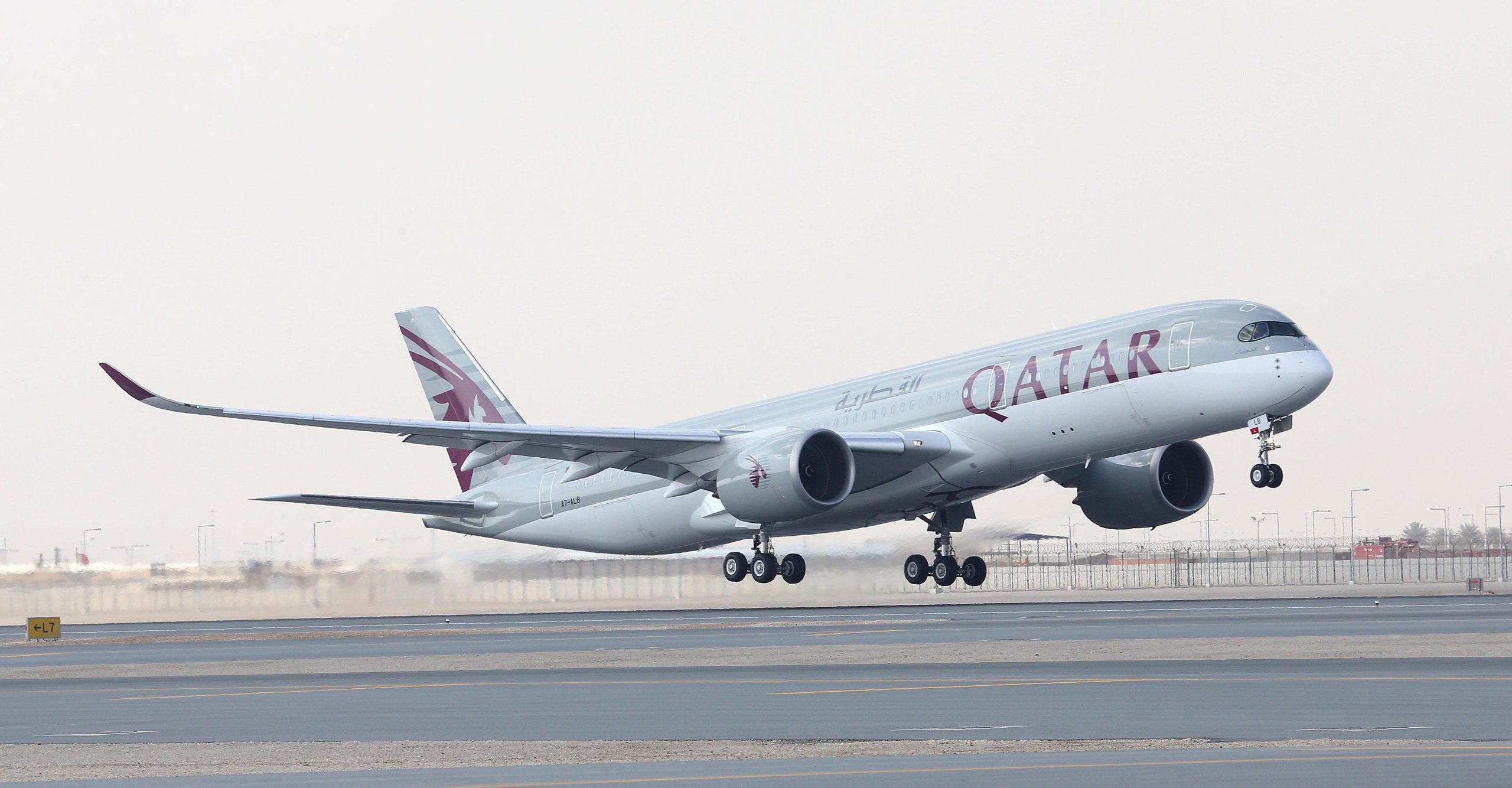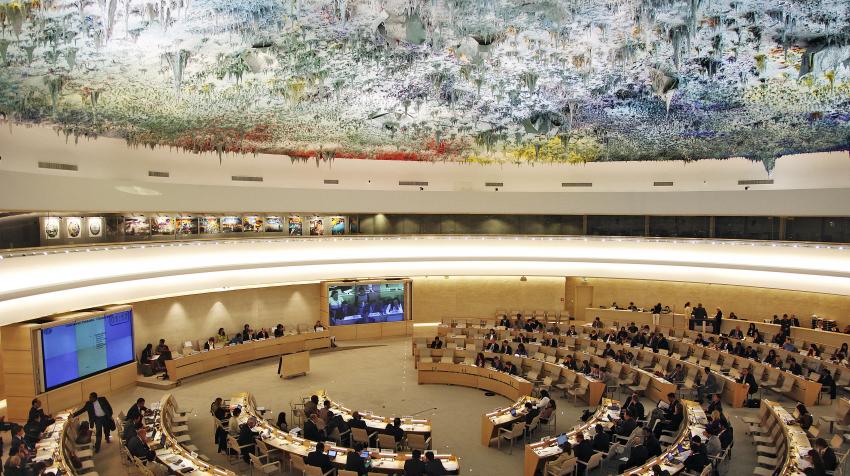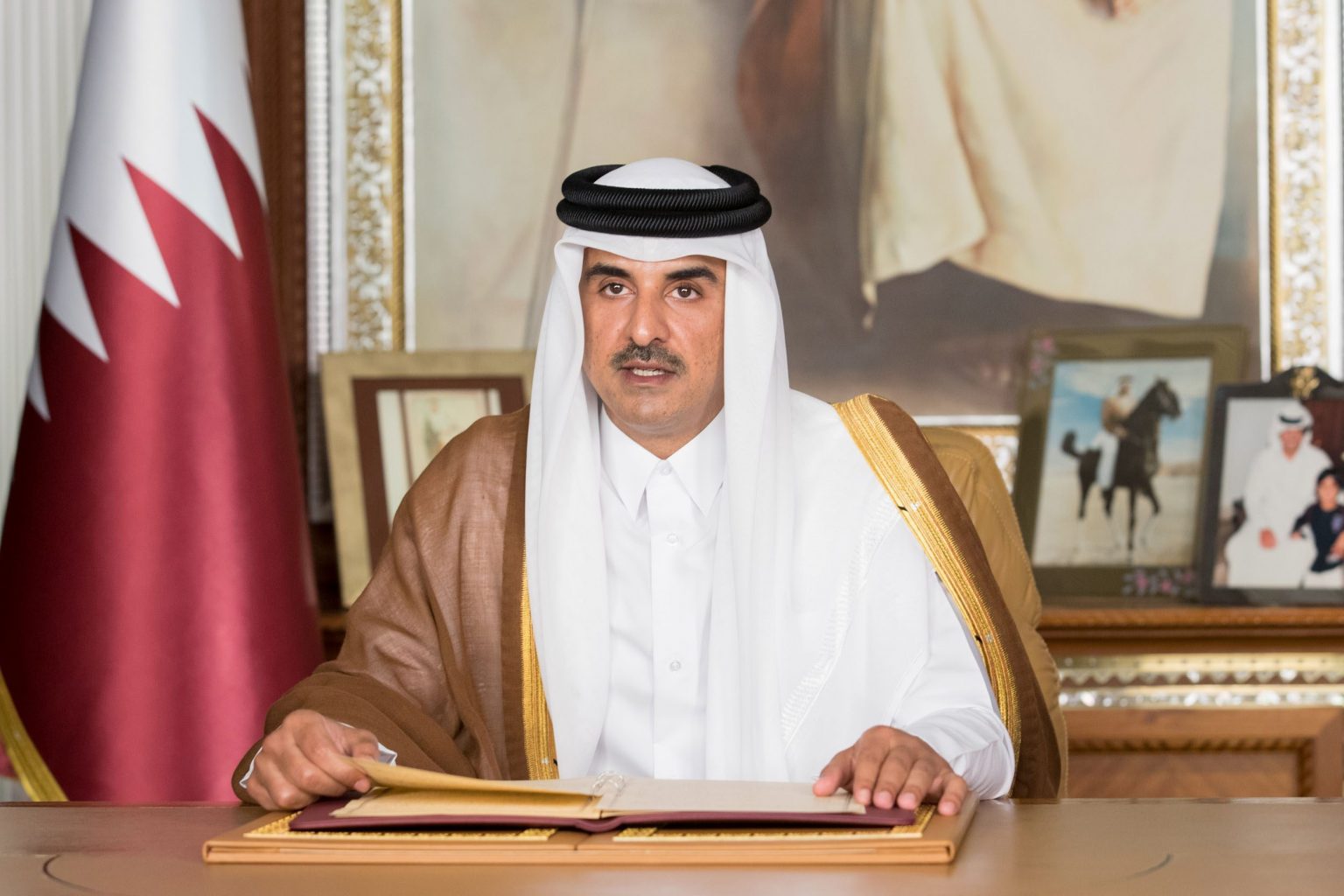The signing comes amid a significant growth in Qatar and Jordan’s ties in various sectors, with Doha hosting at least 60,000 Jordanians working in various sectors.
Qatar and Jordan have agreed to allow designated carriers to operate any number of flights in a bid to boost bilateral air transport, Doha’s state news agency (QNA) reported on Wednesday.
According to QNA, the civil aviation authorities of both countries signed a memorandum of understanding (MOU) on the removal of restrictions imposed on the capacity of flights between the two countries.
The signing was chaired by President of Qatar Civil Aviation Authority (QCAA), Mohamed Faleh Alhajri, and Chief Commissioner of Jordan’s Civil Aviation Regulatory Commission (CARC) Haitham Misto.
Jordan’s news agency (Petra) also reported that the QCAA and CARC held a “fruitful” meeting over expanding the aviation ties between the two countries.
The latest MoU comes following the signing of a March agreement between the two entities, enabling Jordanian companies to connect to more global destinations.
Qatar-Jordan ties
The signing comes amid a significant growth in Qatar and Jordan’s ties in various sectors, with Doha hosting at least 60,000 Jordanians working in various sectors.
Recent reports stated that Jordanian authorities are offering security jobs at the Qatar World Cup to retired soldiers later this year, as the Gulf state continues to announce security agreements with nations from around the world.
Qatar and Jordan’s bilateral trade witnessed a 32% increase in the first quarter of 2022, per an April report by Amman’s news agency (Petra), citing data from Doha’s Planning and Statistics Authority (PSA).
Trade between the two countries over the first three months of this year has reached $41 million, it was $31 million over the same period last year.
The goods that Qatar imports from Jordan include fruits and vegetables, frozen foods, livestock, medical supplies including medicine, marble, and phosphate amongst many others.
Exports to Qatar were projected to increase by 10% to 15% following the GCC reconciliation last year after the 2017 crisis.
The main factor in the increase was the ability of trade trucks to enter the country through Saudi Arabia’s border instead of shipping them by air.
At the time of the crisis, Saudi Arabia, Bahrain, the UAE and Egypt imposed an illegal land, air and sea blockade on Qatar over claims that it supported terrorism. Qatar has denied those claims.
The embargo was lifted on 5 January, 2021, following the signing of the Al-Ula Declaration.
Qatar’s overall private sector exports to Jordan in 2021 amounted to $45.3 million, a 20.6% increase in comparison to 2020, where the total reported was $36 million.
There are more than 1,100 joint Qatari-Jordanian companies operating from Qatar in the trade, contracting, construction, interior design, and maintenance sector.
Jordan’s King Abdullah II was in Qatar in October last year, where he met with Qatar’s Amir Sheikh Tamim bin Hamad Al Thani.
In 2020, Qatar’s Amir Sheikh Tamim bin Hamad Al Thani visited Jordan for the first time since 2014, where he offered to provide 10,000 jobs for Jordanians. He had also pledged $30 million in assistance to the Amman’s military pension fund.
During the two day visit, the two countries signed an agreement on mutual visa exemption for holders of diplomatic and special passports. Another MoU was signed between the Qatar Investment Authority and Jordan’s Government Investments Management Company (GIMC).







